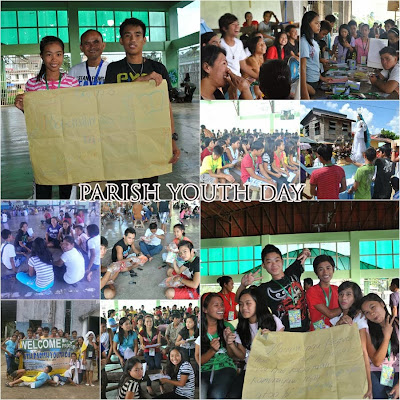by Fr. Clemente Moreira, FdCC
The theme “Walking before God as Brothers in Fidelity until the End” was formulated after consultations with and reflections of each community and indeed every member of each community in the whole Congregation of the Sons of Charity – Canossian brothers and priests. The 12th General Chapter preparatory commission consolidated and synthesized the fruits of the shared reflections on April 27-28, 2011. The General Chapter of the Congregation that was held from April 15 till May 8, 2012 at Poiano, Verona – Italy, deepened the theme and the phrase “as brothers” was made as an indispensably integral part of the theme. Since then, this theme has been guiding the whole Institute in its journey.
Abraham is the biblical figure that was chosen as an icon in our reflection and direction for six years. Abraham made his journey of faith after God had called him. He was not so young anymore when he was called. As a man of his age, it would have been more convenient for him to settle down and to enjoy the remaining years of his life in his known place and socio-cultural environment. Contrary to this expectation, Abraham responded affirmatively to the invitation and the promise of God. He left the place of his birth and walked to the place unknown to him but certainly was known to God. He did not walk alone. God was not just waiting for him at the finish line to see if he could make it to the end. God walked with him. God was with him.
As a congregation, we would like to have a fresh way of looking intently at our commitment to walking in the path the Lord himself has paved and continues to pave for us. Our Canossian vocation implies that we are not meant to passively “settle down” but to walk in active and dynamic manner. We would like to have a renewed pledge of walking before God. This may sound like we walk ahead of God as though we were leading God to where we want; according to our own plans and projects we perceive more convenient to us. On the contrary, walking before God means walking in the presence of God who leads us to where He wants according to his plans. Walking before the presence of God requires us to reawaken our spiritual consciousness that walking our canossian vocation entails walking in God’s constant presence.
Contemplating on the reflections that were derived from the concrete and experiential realities of communities, the General Chapter participants integrated the words “as brothers” into the general theme for the six-year-journey of the congregation. At times, we unwittingly breathe the air of individualism. There seems to be more and more desire to walk without the others. There appears to be increasing tenderly to walk alone. Reading certain phenomena in the communities against the backdrop of this “cultural trend”, the communitarian and fraternal dimension of the journey is perceived, understood and lived as a non-negotiable value inherent in living our canossian vocation today. We do not walk together as strangers who do not know each other but as brothers so as to encourage, strengthen and remind each other to walk in the ways of God; the ways of Charity whose sons we are. “Sons of Charity” was the identity our Mother Foundress, St. Magdalene of Canossa gave to our Institute she founded at Venice on May 23, 1831 after many years of much prayers, reflections and efforts in seeking God’s will. As brothers, we walk together in fidelity. Our fidelity is a response to God who is ever faithful to us. His loving fidelity is eloquently made manifest by Christ on the cross who is the source of St. Magdalene’s inspiration. We are to be faithful to the ideals our Mother Foundress has handed down to us as a particular manner of living the Gospel in our context.
St. Magdalene of Canossa pointed out to us that Christ Crucified is our only exemplar in living our vocation. We see in the life and ministry of Jesus that he was faithful to His Father from the beginning until the end of his earthly life. We seek to walk in God’s presence as brothers in fidelity to the Canossian charism and spirituality not only periodically; when we feel good because everything goes well with us, or living our vocation as though it were a kind of contract that we could terminate when we wish to. We are to be faithful to our identity and mission particularly in trying and challenging moments. This is possible if we constantly fix our attention on the Father’s faithful love that knows no bounds and on Christ’s never-ending fidelity to the Father and to those he loves.
“We are to be faithful to our identity and mission particularly in trying and challenging moments.”












